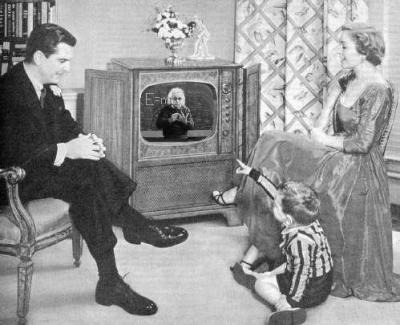
Act II: In which I begin to sound a bit like Brennan Manning (failing miserably I might add), begin with the free will propaganda, hate on Calvinism for a second or two, start repeating myself, drop the f-bomb, insult the reader, and end at a loss for words.
So like I was saying, the Bible is pretty adamant that Christ pursues everyone. And since he is actively drawing all people to him, we don't really need "salvation exceptions" for the Greeks, the Jews and the kiddies. It's not just the "good" or the "moral" and the "innocent" that Christ draws to himself. It's not even just the Christians. It really is everyone! He draws the prisoner on death row and the preacher behind the pulpit -- the apostate who's left the church and the noble savage who's never heard of the church -- philosophers, princes, prostitutes and pornographers. He draws them all to him because he loves them. Make no bones about it, he's crazy in love with everyone on the face of the earth.
Classical Theism/Calvinism winds up either A) ignoring the fact that God desires all people; or B) reverting to a sort of syrupy Universalism, where because in drawing all people to himself, God saves everyone. Regardless of their opinion of God.
But for the free will-ers, we end up with another option -- that everyone gets a choice. As God draws them near, they can either accept or reject his advances.
No one comes to the Father but by me. We always assumed this meant that one had to hear about and accept the message of Christ to come to the Father. But why?
No one comes to the Father but by me. As God literally pines after humanity, Jesus stands between us, whispering sweet nothings into our ear, "sweet nothings" of compassion and grace and forgiveness, willing that all should accept the proposal of the Father. Marry my only Son, my beloved. Jesus stands as both matchmaker and the matched. He sees that God and humanity make a heck of a pair, and does everything in his power, short of forcing us into the match, to see us accept this divine proposal.
Of course, because there is true choice and free will on our part, some are bound to reject the advances of the bridegroom, and choose another suitor. But others, be they protestant, catholic, greek, jew, hindu, buddhist, agnostic or none of the above will welcome Christ, as he draws them to himself, regardless of whether or not they said the sinner's prayer, stepped foot into a church, or even heard the name Jesus from the lips of a Christian.
And I, when I am lifted up from the earth, will draw all people to myself. Could this end in Universalism? Perhaps. But not because God decided "in his mercy" to herd humanity like a so much chattel into heaven, but because God made such a convincing argument in the Advent of Jesus Christ that everyone ends up accepting his graceful (that is, full of grace) proposal.
But the point is, we don't know. Maybe a few people will end up choosing hell. Maybe more than a few will. But the fact that Christ pursues everyone -- all people -- regardless of the physical limitations of his Church, should give us hope. A wider hope that there will be more than just "the saved" in heaven. That it will be populated by Christians of all shapes, kinds and colors; never minding whether or not they ever heard the title "Christian" before, but rejoicing in the fact that heaven is full of the sons and daughters of God, pursued to the ends of the earth by the love of Christ Jesus our Lord.
In spite of this hope, or perhaps even because of it, Christ still wants us to tell everyone we meet in this lifetime about his great love for us, that while we were still sinners, he died for us. Because while salvation might culminate in the new heaven and the new earth, in what theologians like to call the eschaton, salvation begins here, on the current earth. It begins now, in the muck and mire of subjective morality, crushing poverty, violent racism, and an international AIDS crisis. Yes, salvation comes to change hearts, but it comes to change the face of the earth, too.
So while we cling to a wide hope, based not on man's "nobility" but on Christ's desire for all people (ie, grace), at the same time we proclaim -- we claim this fact loudly and without reservation -- that salvation has come today, piercing the darkness of a fallen and fucked up world. Yeah, he's come to redeem us, in spite of our infirmities and our weaknesses, our penchants for pride and swearsies, in spite of the fact that we're all judgmental bastards and selfish little pricks, our God has come to save us, to draw us to his side, and give us all an invitation to the wedding feast to end all wedding feasts. If we can't get over the fact that the final guest list might surprise us, eternity might actually feel like an, errr.....eternity.
Tuesday, March 01, 2005
Hell and human freedom. More bits, now with half the carbs!
Posted by
jonny
at
2:42 AM
![]()
Subscribe to:
Post Comments (Atom)




No comments:
Post a Comment